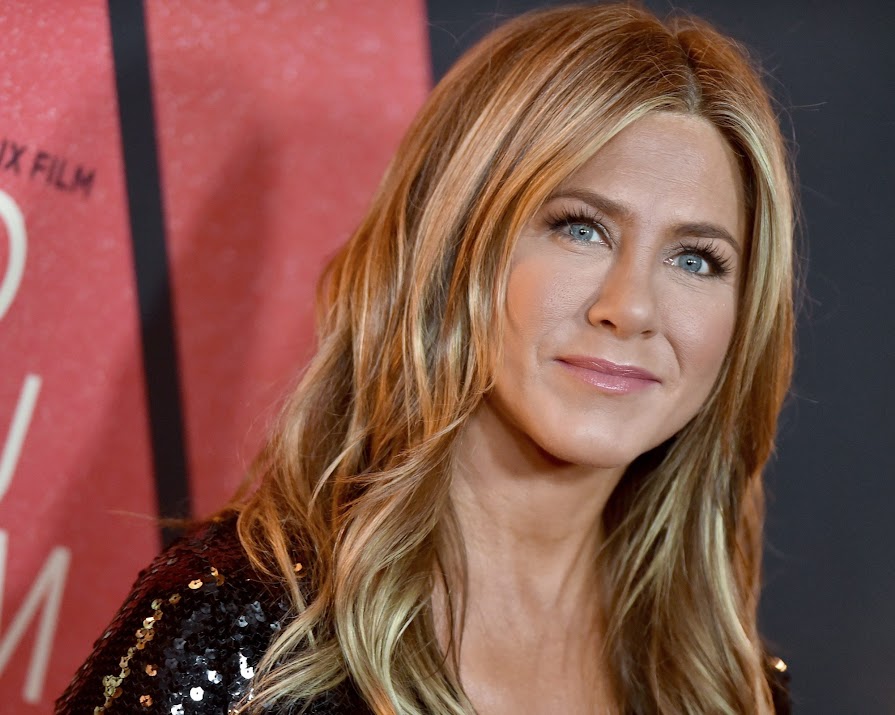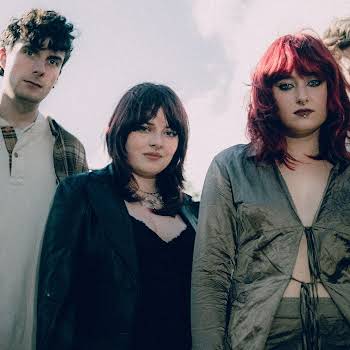
A mould we’re trying to break out of: Jennifer Aniston says she doesn’t need a ‘happy ending’
By Jennifer McShane
08th Dec 2018
08th Dec 2018
After decades in the public eye, Jennifer Aniston is still an enigma to the media at large. Why hasn’t she settled down? Why hasn’t she had children? How can she be this successful and still single?, yell the tabloid headlines. At 49, the actress currently starring in Netflix’s brilliant Dumplin’ is the subject of public obsession that only seems to get more intense as the years go on. Currently gracing the cover of Elle magazine, the Friends alum muses as to why the (generally unflattering) commentary on her life has never abated.
“Maybe it has everything to do with what they’re lacking in their own life,” she says. “Why do we want a happy ending? How about just a happy existence? A happy process? We’re all in process constantly. What quantifies happiness in someone’s life isn’t the ideal that was created in the ’50s. It’s not like you hear that narrative about any men.”
In a tale as old as time, for many marriage and children is still as the ultimate marker of female happiness and success. To not have these items ticked off, as Aniston well knows, mean you’re constantly subjected to criticism and a narrative of failure. It is indeed the exact opposite of the narrative we hear for men. Men are taught to seek empowerment by forging a career; to climb the ladder. They aren’t disempowered if they choose not to prioritise a family – or have one at all – they are still viewed a success.
“That’s part of sexism—it’s always the woman who’s scorned and heartbroken and a spinster. It’s never the opposite. The unfortunate thing is, a lot of it comes from women,” Aniston continues. “Maybe those are women who haven’t figured out that they have the power, that they have the ability to achieve a sense of inner happiness.”
View this post on Instagram
Aniston has always seemed to have achieved a sense of contentment – even asides from the hugely successful career. But the media just can’t grapple with that idea; that this is the life that she has chosen, it is one that is without children and that she’s happy regardless. Because generally speaking, we’ve always had it in for her. She was the jilted wife that “never recovered” from Pitt’s slimy, distasteful betrayal to Jolie, even a decade later, the childless woman that has never quite made it in terms of having a family or a second marriage that didn’t work out. A picture is painted of a woman that we should feel eternally sorry for, yet she says she’s one who never chased the ‘having it all’ dream. But by keeping the “Poor Jen” narrative going, all we are suggesting is that she has failed deeply in some way.
“I don’t feel a void. I really don’t. My marriages, they’ve been very successful, in [my] personal opinion. And when they came to an end, it was a choice that was made because we chose to be happy, and sometimes happiness didn’t exist within that arrangement anymore… I would not stay in a situation out of fear. Fear of being alone. Fear of not being able to survive. To stay in a marriage based on fear feels like you’re doing your one life a disservice. When the work has been put in and it doesn’t seem that there’s an option of it working, that’s okay. That’s not a failure.”
View this post on Instagram
“We have these cliches around all of this that need to be reworked and retooled, you know? Because it’s very narrow-minded thinking. It’s the only place to point a finger at me as though it’s my damage—like it’s some sort of a scarlet letter on me that I haven’t yet procreated, or maybe won’t ever procreate.”
Even Aniston was forced to directly address this in an eloquent op-ed for the Huffington Post last year.
“The sheer amount of resources being spent right now by press trying to simply uncover whether or not I am pregnant points to the perpetuation of this notion that women are somehow incomplete, unsuccessful, or unhappy if they’re not married with children,” she wrote.
Going back to the complex ideals of a happy ending, she agrees it’s “a very romantic idea.” That she has her own happy ending is perfectly clear, the issue is that it’s her version and not the one society expects of her. “It’s a very storybook idea. I understand it, and I think for some people it does work. And it’s powerful and it’s incredible and it’s admirable. But everybody’s path is different.”
She’s been deemed ‘America’s Suffering Sweetheart’ (a gross disservice) but perhaps if she was simply allowed to be herself and be respected for her life choices, she’d suffer no longer.























